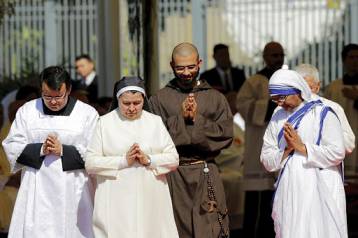There are several different types of religious leaders. In Christianity, there are ministers, pastors, and reverends.
Each has a different role and duty in the church.
Both ministers and pastors are leaders of the church. However, there are differences between a minister and a pastor. In this article, we will be discussing the differences between a minister and a pastor.
Summary Table
| Pastor | Reverend |
| Lower rank. | Senior rank. |
| Less formal. | More formal. |
| Most used in Christian churches. | Most used in Protestant churches. |
Definitions

The Reverend title has been used in the Christian Church since the Middle Ages. It was originally used as a title of respect for men who were considered to be leaders of the church. It was later adopted by the Roman Catholic Church as a way to show respect for their priests. It is not used by all Christian churches, and there are some denominations that do not use it at all.
In the Middle Ages, a priest was someone who was very learned in the church. He had to know the entire Bible by heart. In addition, he had to be able to teach the Bible to others. A minister was an ordained person who was chosen by a local congregation to lead them in religious matters. A minister did not have to be so learned as a priest. In modern times, a minister is called a pastor or reverend.
Ordination is an important ceremony in which a man is ordained as a minister or pastor of a church. The word ordain comes from the Latin word ordinare, which means to order or appoint. The ceremony that takes place during ordination is called induction, but both terms are commonly used interchangeably. During induction, a man is ordained into one of three different orders within the church; Deacon, Priest or Bishop. Each order has its own requirements and rituals that must be followed during induction. Ordination ceremonies are performed by men who have already been ordained themselves, usually by an ordaining body outside of the local church. In most cases, a bishop will ordain another bishop for his own diocese, but there are also many churches where deacons and priests can ordain each other.
A pastor is a man who has been ordained to the office of a pastor within a church. This is the most common usage of the Reverend title, and it is usually used in conjunction with another word to describe what type of pastor the man is. For example, a man might be referred to as an Associate Pastor or a Youth Pastor. The word Pastor can also be used on its own, and it is often used by churches that are small enough that all of their pastors have to perform all of the duties associated with their office. A pastor is considered to be more informal than a reverend, and this term is most commonly used by churches that do not use any formal titles for their ministers.
Pastor vs Reverend
A pastor is someone who has the authority to take care of his congregation and provide them with spiritual guidance. The word ‘pastor’ comes from the Latin word ‘pastor’ which means shepherd.
Therefore, a pastor is someone who takes care of his flock, and shepherds them to eternal life.
A pastor provides guidance in matters pertaining to spirituality, faith, morals, ethics etc., to his congregation through sermons and prayers. A pastor may also be referred to as an elder or overseer of his church or parish. In many churches today, a man with no formal training in theology may be called a pastor without having any theological training whatsoever.
A reverend is a title given to a person who has been ordained as a minister. It is an honorific title which denotes respect for the person who holds it. It is generally used after the name of the person to whom it is given. The word ‘reverend’ comes from the Latin word ‘reverens’ which means to regard with reverence or respect. In many churches, those who have received theological training are called reverends.
It should be noted that many people do not hold this title after their names because they are not clergymen, and therefore, do not hold any office in their church or parish. Some people are called reverend as a sign of respect for their seniority in age or office in the church.
To put it simply, the following are the differences between Pastor and Reverend:
- Pastor is the title used for the leaders of congregations of Protestant churches. It is often used interchangeably with Reverend. However, in most cases, it is used to refer to the senior pastor or leader of a congregation. The Reverend is also used to refer to a minister, but it is more formal than Pastor.
- The pastors are usually called by their first names and the reverends are referred to as “Reverend John Smith” or “Reverend Smith”.
- A Reverend may also be referred to as “The Reverend Mr.
John Smith” or “The Reverend Dr. John Smith” when he holds a doctoral degree or has been awarded an honorary doctorate from a university. This title may also be used for men who have been awarded honorary degrees in recognition of their work in religious leadership. However, it should be noted that such degrees are not conferred by accredited universities and are not accepted by educational institutions as part of an academic degree program or curriculum.
- The Reverend is used in most Christian churches, while the Pastor is used in many Protestant churches.
- In most cases, the Reverend is a higher rank than the Pastor.





